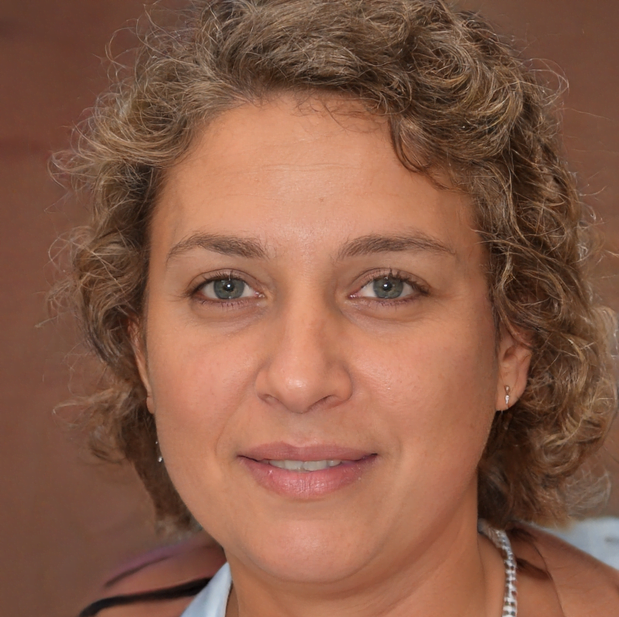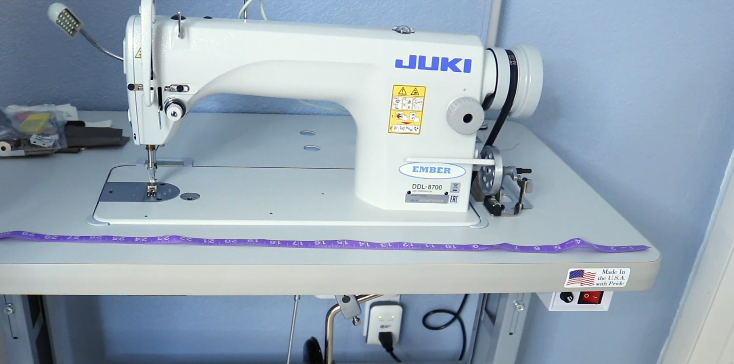If you are reading this, you are probably looking for an in-depth comparison between the Juki DDL 8700 and 8700-H. While there is a lot that’s similar about these machines, there are a few key differences which you should be aware of as well.
So, if you are confused between the two even a little bit, you’ll find great value in this article.
Let’s jump right in with a quick comparison chart.
Juki DDL 8700 vs 8700 H Quick Comparison
| Juki DDL 8700 | Juki DDL 8700 H | |
| Servo motor | Yes | Yes |
| Price | Least Expensive | More Expensive |
| Noise reduction | Yes | Yes |
| Vibration reduction | Yes | Yes |
| Thread tension optimization | Yes | Yes |
| Stitch speed | 5500 per minute | 4000 per minute |
| Presser foot lift | 13mm | 13mm |
| Throat plate markings | Yes | No |
| Ideal for | Light to medium thick material | Heavier material |
| Click Here To Check Prices | Click Here To Check Prices |
Juki DDL 8700 vs 8700 H Differences
There is a difference in the throat plate markings and foot size on both machines. The Juki DDL 8700 has the markings on the throat plate and has a smaller foot, while the 8700 H doesn’t offer markings.
Moreover, the 8700 H is a heavy-duty machine and is designed for heavier threads and heavier material. So, the parts are a little different than the 8700.
Another difference is the stitching speed. The Juki DDL 8700 offers a speed of 5500 stitches per minute, while you can go up to only 4000 stitches in the 8700 H model.
A tiny difference between the two machines is that the Juki DDL 8700 has a small disk on the spool pin, while 8700 H does not.
If you’d like a full overview for both machines, keep reading for that. However, our top pick is for the Juki 8700, because it’s a much faster machine. However, if you sew heavy fabrics, the 8700H is likely the way to go.
The Juki DDL 8700 comes with an assembled table in addition to a servo motor. A servo motor ensures fast and accurate operation without causing the noise.
Servo motors are also energy-efficient; something to consider if you are planning on working long hours on your projects.
In addition to that, they allow easy speed control, which makes the sewing process further convenient. This also makes the machine great for beginners.
Moreover, it optimizes the thread tension as per the fabric type. This ensures high-quality and consistent stitches no matter the fabric type.
Nobody likes noise and vibration while working on sewing projects. The low-noise and low-vibration features on this sewing machine let you work in a calm and comfortable environment, which eliminates distractions and can manifold your creativity.
And, if you are a fan of extremely fast sewing, or would want to sharpen your sewing skills at high speeds, there is good news for you. The machine lets you sew at a whopping rate of 5500 stitches per minute.
Plus, with the presser foot that has a high presser lift of 13mm, you can easily place and adjust the fabric under the foot.
Seam allowance can be a tricky thing if you want perfection in your work. The good thing is, the throat place is equipped with markings that guide you in maintaining that perfect distance from the edges of your fabric.
However, you don’t get an instruction manual with the machine. So, you’ll have to figure it out yourself or with online help to put the machine together.
All in all, the Juki DDL 8700 is a great sewing machine for you whether you are a beginner or a pro. It’s easy to use, has a durable build, and offers all the features that you would want to make your workflow smooth. Click here to check prices and availability for this machine.
Pros
- Easy to use
- Cheaper Price
- Best bang for the buck
- 5500 stitches per minute
- Works quietly
- Convenient speed control
- Guide markings on the throat plate
- Low vibration
Cons
- No instructions included
- Not good for thick fabrics
Click here to read reviews and check prices and availability for the Juki DDL 8700
Juki DDL 8700H
The Juki DDL 8700 H comes at a reasonable price point and offers everything a premium sewing machine should offer.
It’s great for those looking to get their feet wet with sewing projects. So, whether you are a beginner or a pro, this one is going to be a good investment for you.
Similar to the Juki DDL 8700, it comes with a servo motor, which is great for maintaining a distraction-free environment for ultimate creativity.
The motor works quietly and accurately and allows you to adjust the speed easily. Servo motors are also energy-efficient, so the machine will be gentle on your electricity bills.
Plus, Juki DDL 8700 H uses the latest technology to provide a comfortable and productive environment by reducing noise and vibrations.
What’s more, the machine optimizes the thread tension to conform to the fabric you are working on. The optimized tension allows you to stitch uniform seams.
Moreover, you’ll be amazed by how fast you can sew with the Juki DDL 8700 H. Although it’s not as fast as the 8700 model, it can go up to 4000 stitches per minute. So, if you want to sharpen your skills or just want the option to stitch at extreme speeds, it’s for you.
Also, you can easily place or adjust the fabric under the presser foot because you can raise it by 13mm.
It’s an easy-to-use-machine; you can adjust the speed according to your expertise level.
In addition to that, it’s a heavy-duty machine, so you can sew with thick threads. This allows you to stitch multiple layers and thick fabrics easily.
But, the Juki DDL 8700 H doesn’t come with a manual; you can use online tutorials to set it up though.
Pros
- Easy to use
- Adjustable speed
- Low noise and vibration
- Cost-effective
- Energy-efficient
- Optimized thread tension
- 4000 stitches per minute
- Great for thick fabrics
Cons
- No instruction manual
- Machine is slower than 8700
- Costs more than the 8700
Click here to check prices and availability for the 8700H.
Conclusion
In conclusion, we prefer the 8700 for its speed, but if you’ll be sewing a lot of thick fabrics, you’ll probably need the 8700H to meet your needs. After all, 4000 stitches per minute is nothing to sneeze at!
However, Juki DDL 8700’s throat plate has guide markings on it, while the 8700 H doesn’t offer that.
And, the DDL 8700 H is designed for heavier material and heavier threads, whereas the DDL 8700 is great for light to medium thickness material.
So, the best way would be to think about which type of materials you are going to work on in the future and choose accordingly.

Tanya, both a nurturing stay-at-home mom and a skilled crafter, is the creative force behind our blog. As the co-founder of Romney Ridge Farms & Crafts, she’s the editor and curator. She also runs the Romney Ridge Farms & Crafts social media accounts where we post new patterns for you to enjoy.






